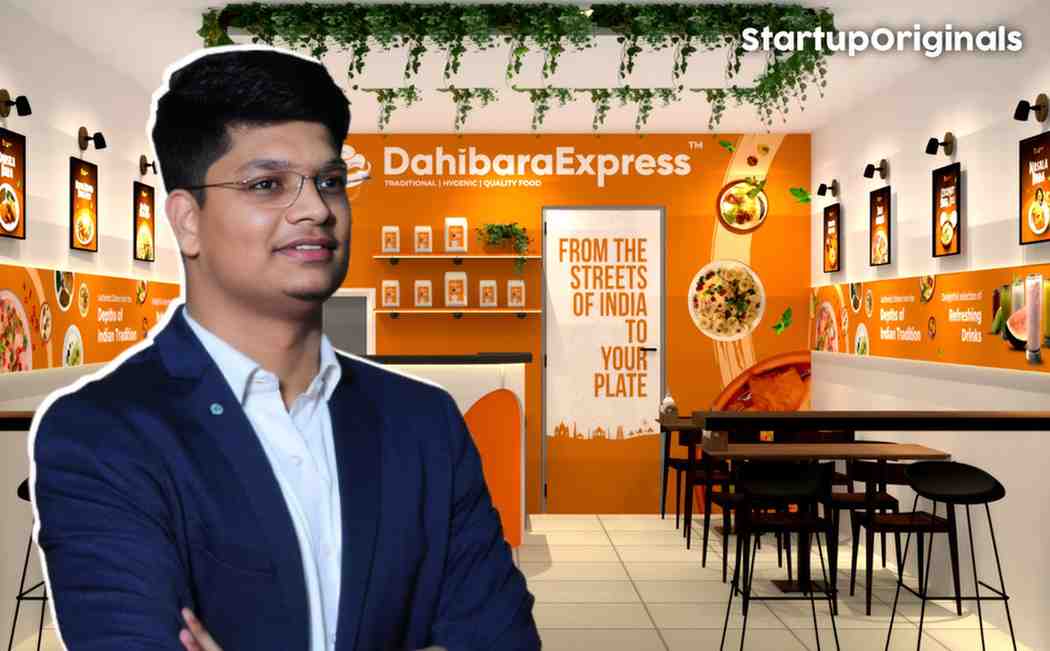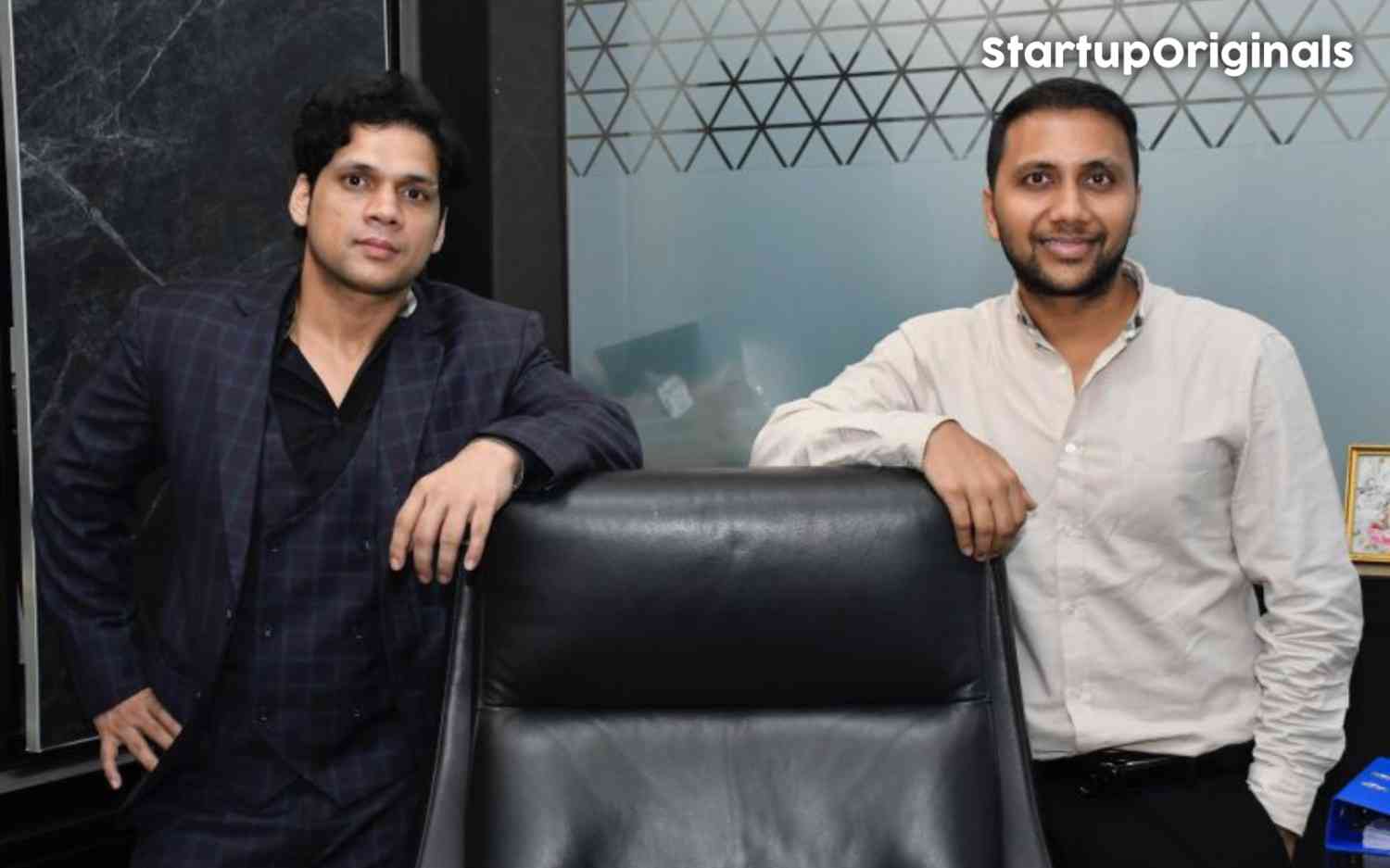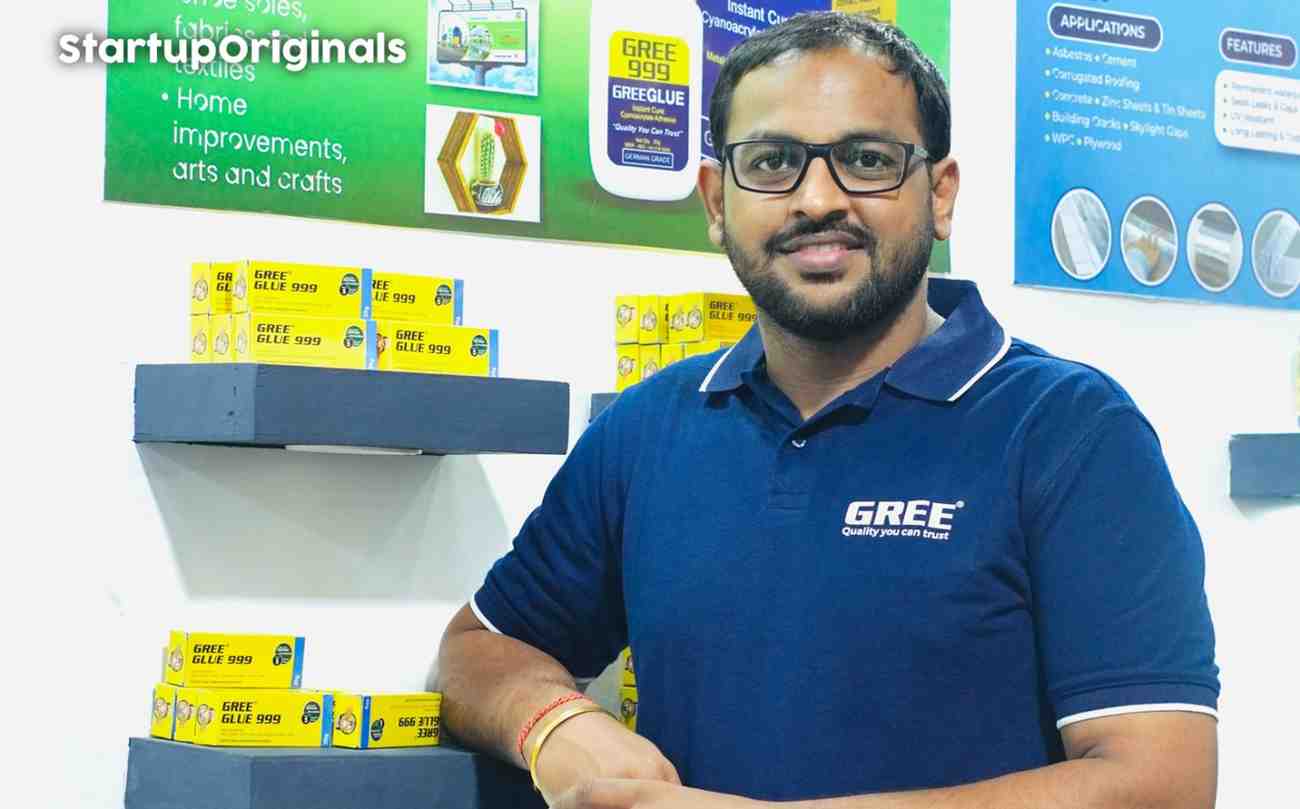
Meet Sourabh Khandelwal, the young hotel management graduate from Sambalpur, Orissa, who transformed a local street food into a thriving national brand. Despite personal hardships and industry challenges, Sourabh’s Dahibara Express now clocks an impressive ₹1.8 crore in annual revenue, proving that vision and perseverance can turn simple ideas into extraordinary success.
Dreaming Big Amidst Challenges:
After graduating from the Institute of Hotel Management, Bhubaneswar, in 2019, Sourabh faced the loss of his father while preparing for his board exams. This pushed him to take responsibility for his family at an early age. Although he began his career in the hospitality industry, his heart was always set on entrepreneurship. He wanted to create a brand so recognizable that people would refer to it as a landmark in their city.
His participation in the Jagriti Yatra-an entrepreneurship train journey-exposed him to India’s entrepreneurial community and fueled his ambition to start something unique.
Turning a Local Delight into a Brand:
While working a comfortable job in Delhi with a salary of Rs. 35 LPA, Sourabh felt restless. At 25, he decided to return to Orissa and immerse himself in the world of local street food, specifically Dahibara-Aloodam, a beloved dish in the region. He spent a month sampling varieties across the streets, even staying with vendors to learn their craft and business challenges.
He soon realized that though Dahibara was loved by many, it was often sold without proper hygiene or business sustainability. Most vendors earned a minimal profit, discouraging the next generation from joining the trade. Sourabh saw this as both a crisis and an opportunity: the time was right to build a hygienic, scalable, and recognized Dahibara brand.
The Birth and Struggles of Dahibara Express:
In December 2022, Sourabh visited Dubai and networked his way to securing an initial investment of Rs. 30 lakh from an Odisha-origin investor. By January 2023, he had registered his company, THQ Food & Beverages (“Traditional, Hygiene, and Quality foods”), and officially launched Dahibara Express.
However, the journey was far from smooth. Just six months in, the company’s cash reserves dried up, and the initial investor pulled out, demanding a return of funds. Faced with mounting debt and uncertainty, Sourabh could have given up-but instead, he pivoted.
The Power of Franchising and Viral Marketing:
A friend from his Jagriti Yatra days suggested franchising, which Sourabh initially hesitated to try. That friend made and circulated a Dahibara Express video, which spectacularly went viral—clocking 4 million views in just 12 hours. This brought in 3,000-4,000 franchise inquiries almost overnight.
Riding the momentum, Sourabh launched a franchise model. Although some early franchise partners lacked commitment due to the low entry fee, he quickly learned to be more discerning in partnership selection. With lessons learned, the business regained its feet.
Overcoming Challenges:
Building Dahibara Express wasn’t without its hurdles:
- Staffing: Attracting and retaining skilled staff was tough, as many demanded high salaries while others lacked the commitment necessary for training.
- Financial Planning: A lack of experience in financial management led to growing pains in the early months.
- Franchise Selection: Not all franchisees were suitable partners, teaching the team to focus on quality over quantity.
Sustainable Growth and Social Impact:
Today, Dahibara Express operates 12 profitable outlets out of an original 18-19, having optimized its franchise network. The brand serves about 10 varieties of vada, rotating dishes seasonally, and every recipe tells a regional story.
To ensure consistent quality, Sourabh established central kitchens in every city where Dahibara Express operates—like Bhubaneswar, Ahmedabad, Siliguri, Thane, and Himmatnagar. Each kitchen, run by a master franchisee, supplies local outlets to maintain standardized taste and hygiene across locations.
The company also prioritizes female empowerment, recruiting and training women as staff and chefs, and actively nurturing talent regardless of prior experience.
Modern Retail and Delivery:
Franchisees can launch outlets in spaces as small as 150 sq.ft, often starting as kiosks but ideally offering table seating to boost order values. Orders are accessible online through platforms like Swiggy and Zomato, enhancing reach to tech-savvy consumers.
Expansion and Recognition:
With a current team of 80, Dahibara Express is preparing for international expansion—with a Dubai store opening soon and another planned for Nepal. Sourabh’s vision has also been recognized at high levels: he has won the “Biggest Vada Award” and was praised personally by Prime Minister Narendra Modi for his efforts in popularizing Indian street food.
Conclusion:
Dahibara Express isn’t just a food chain; it’s a symbol of tradition meeting innovation. With a clear focus on hygiene, authenticity, and community empowerment, Sourabh Khandelwal’s journey from the streets of Orissa to international markets stands as inspiration for aspiring entrepreneurs across India.




